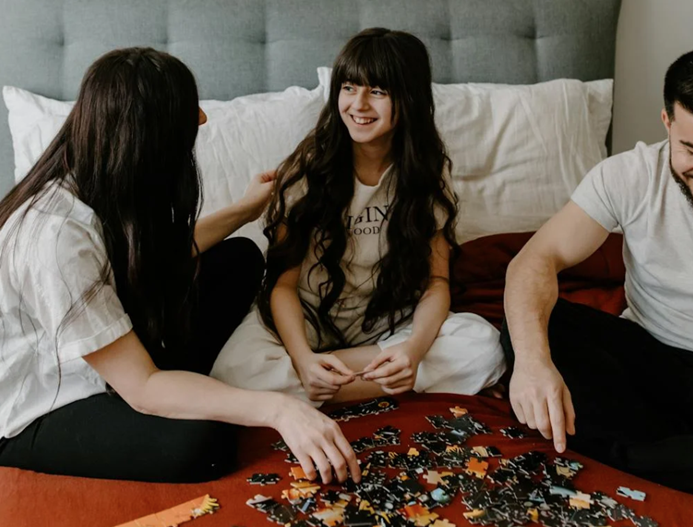Parent Involvement in Youth Residential Treatment
Parents are an important part of the youth residential treatment process. Supporting a student’s treatment throughout their healing process is one of the best things a parent can do. There are many ways to support students, like participating in therapy, activities, and open communication. Parents can reinforce the hard work students put into their residential treatment through participation, leading to long-term success. At CERTS, we take parent involvement and education seriously. Let’s look into what parent involvement looks like in our CERTS residential treatment programs.
CERTS Cares About Parents and Their Students
We know that when a child is going through youth residential treatment, they work hard to learn new skills. Parents also need to learn new skills, by participating parents can help with the success of their student after treatment. Parents of students at CERTS have frequently expressed their delight at the personal growth and change they have experienced in themselves and their children. Parents are excited when they can connect with their teens through fun activities while also learning new parenting skills from our program.
CERTS provides different learning opportunities to assist parents, including:
- Quartley on-site parent seminars
- Parent education webinar series
- Frequent visits with the teen during treatment, then at home
Parent Webinars
CERTS provides live webinars for parents up to three times per month. Our webinars are taught by clinical and academic experts from our staff. During webinars, parents are able to interact with the instructor and ask valuable questions. CERTS also provides a Parent Education Channel where parents can view a robust library of educational webinars at their convenience.
Parent Seminars
During youth residential treatment, parents join us frequently at CERTS for multi-day conferences that include activities, intensive parent support groups, classes, parent-teacher conferences, and family therapy sessions. Our programs are designed to mix deep therapy with fun, making the healing journey a positive experience for both students and parents.
Parent Assignments
As part of the family therapy work parents will do at CERTS, they may be given assignments by their therapist. These assignments typically correlate with the level of work that a student is doing. Assignments could include reading chapters from educational books, watching webinars, or writing thoughts or feelings to be shared in family therapy.
Home Visits
We want our parents to be prepared to have their students return home after youth residential treatment. The transition period provides a place for students and their families to practice new skills they have learned as a family unit. During home visits, families work on practicing new skills, continuing family therapy, joining community support groups, and continuing education. Visits from CERTS allows the transition back home to be as smooth as possible.
Ways Parents Can be Involved in Youth Residential Treatment
- Parents can stay informed about their teen’s treatment by regularly communicating with CERTS staff.
- Participating in family therapy sessions can address family issues and build healthy relationships for parents and their children.
- Support groups are a great way for parents to find emotional support and get advice from other parents going through the same situation.
- Parents can use positive reinforcement to promote good behaviors and actions from their children.
- By staying informed about their teen’s issues or mental health conditions, parents can better understand their teen’s experiences.
- Parents should engage in recreational activities and experiential therapies with their teens at CERTS, this can provide support for their teens.
- Parents should be a role model for their teens and encourage them to maintain healthy habits.
- Open communication during youth residential treatment can lead to a healthy, honest relationship between parents and teens.
- Parents can collaborate with CERTS staff to develop a comprehensive aftercare plan to foster independence for their teen after treatment is completed.
Parents are Crucial for Youth Residential Treatment Success
Parents who take the time to get involved in family therapy, education, support groups, activities, and experiential therapy are likelier to have a teen who feels supported and validated. Creating a supportive environment with healthy habits and open communication can reinforce the work that has been done throughout youth residential treatment. A struggling teen’s work typically isn’t done after treatment; parent encouragement and support can promote long-term success. At CERTS, we know that the healing process can be difficult, but with parent involvement the treatment can be fun and educational. Contact CERTS today to learn more about our residential treatment programs. We have specific programs designed to help each individual student based on the way they learn, including Kolob Canyon, La Europa Academy, Moonridge Academy, and Mountain Springs Preparatory Academy.

